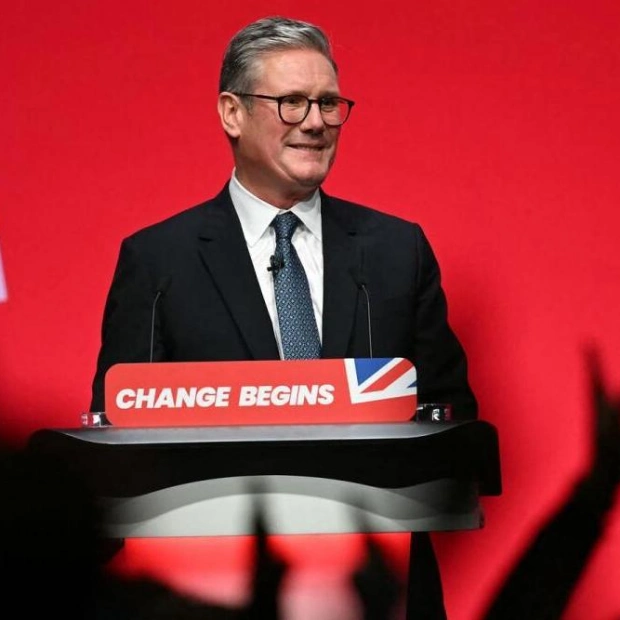The victors of Britain's election on Thursday, poised to conclude 14 years of Conservative Party rule, will confront some of the most formidable challenges any new government has faced since the end of World War Two. The economy has been sluggish, health and other services are under significant pressure, and there is minimal fiscal space to address these issues. The government is also falling short on its immigration and housing targets. Opinion polls indicate a substantial lead for Keir Starmer's opposition Labour Party over Prime Minister Rishi Sunak's Conservatives.
ECONOMY: Britain, along with many other wealthy nations, has experienced only slow economic growth for most of the period following the global financial crisis of 2008-09. Growth in Britain since 2010, when the Conservatives came to power, has been marginally better than in Germany, France, or Italy. However, considering the sharp increase in population due to high immigration, growth since 2010 has been weaker than in Germany and significantly lags behind the United States. Living standards are expected to decline for the first time over a parliamentary term since the 1950s. Sunak claims the economy is recovering after COVID and the energy price surge. Starmer asserts that Labour would achieve the strongest sustained growth among the Group of Seven nations. Since the COVID pandemic, Britain's economy has been the second weakest in the G7.
POVERTY: While poverty has been decreasing, the rate of improvement has slowed since 2010. Absolute poverty, which measures people with incomes below 60% of the median, fell five times faster in the 13 years leading up to the 2009/10 financial year than it has since, according to the Institute for Fiscal Studies. Other indicators of hardship have recently worsened, reflecting the impact of high inflation on poorer households. In 2019/20, 4% of working-age adults could not adequately heat their homes; by 2022/23, this figure had risen to 11%.
IMMIGRATION: Successive Conservative governments have failed to meet their targets to reduce net migration, even after Britain's exit from the European Union and the end of freedom of movement for EU workers. More EU workers are now leaving Britain than arriving, but the number of people coming from other countries, particularly India and Nigeria, has increased significantly. Net migration dropped to 685,000 in 2023 from a record 764,000 in 2022 but remains nearly four times its level in 2019 when former Conservative leader Boris Johnson promised to reduce it.
INACTIVITY: One reason for the high immigration is a shortage of workers. Employers have had difficulty filling vacancies since the pandemic due to record numbers of people classified as long-term sick and an increase in students. Britain is the only G7 country where the inactivity rate, which measures working-age people neither employed nor seeking a job, is higher than before the pandemic. The Conservatives plan to tighten rules on long-term sickness welfare benefits. Labour intends to tackle the issue by investing more in Britain's health service.
HEALTH: The health service is under strain. The number of people waiting for non-urgent treatment, which was already increasing between 2010 and early 2020, surged after COVID and reached nearly 8 million in late 2023 in England alone, almost doubling from four years earlier. The backlog has slightly decreased in recent months, but the National Health Service is far from meeting its target to treat almost all non-urgent patients within 18 weeks. It is also missing its target for timely treatment of emergency patients. Since 2010, health spending, adjusted for inflation, has grown more slowly than the average since the 1950s, at a time when the population is growing and aging.
HOME-BUILDING: Another Conservative promise set to be missed is the increase in new home construction, hindered by opposition to their plans to ease building regulations. In the 12 months to March 2023, just over 234,000 new homes were built in England, persistently below the 300,000 target for the mid-2020s. The Resolution Foundation think-tank states that housing in Britain offers the poorest value for money compared to other comparable economies.
PRODUCTIVITY AND INVESTMENT: The next government's ability to address many of Britain's pressing challenges hinges on its capacity to accelerate economic growth, which would increase household income and public funds. This requires improving weak productivity. London and southeast England are the only regions in the UK where output per hour exceeds the national average, although the capital's lead has narrowed post-pandemic, possibly due to increased home-working. More private-sector investment is needed, but companies have been hesitant to invest since 2016, the year of the Brexit referendum, which led to years of political instability.






